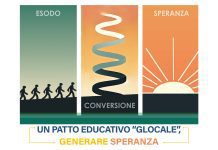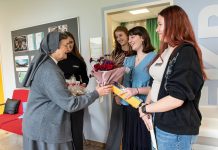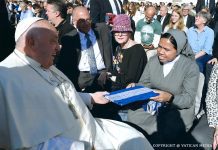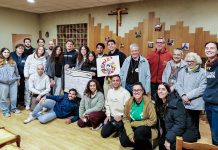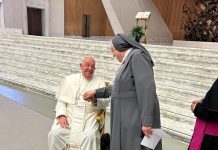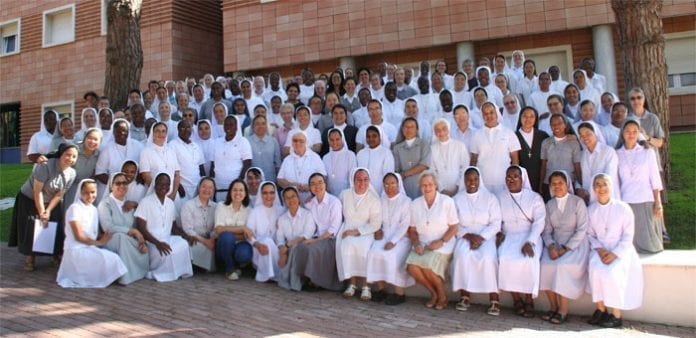Rome (Italy). On 2nd and 3rd September 2018, the Second Preprovince Assembly took place at the site of the Auxilium Faculty. “Mary Mother of the Church” Preprovince (RMC): 179 FMA, 4 continents, 45 nations, 47 provinces, 33 languages, 6 communities, a young reality that on the threshold of the first year of life, gathered to reflect and plan together for the new academic-pastoral year.
The guiding thread of the two days of reflection and sharing was the slogan “New wines for new wineskins” so that both are preserved.
There were about 170 sisters from the communities of: “Mother Angela Vespa”, “Mother Mazzarello”, “Eusebia Palomino”, “Teresa Valsé”, “Mother Ersilia Canta”, and “Paul VI” from Concesio (BS). As the Superior of the Vice Province Sister Maria del Carmen Canales said in the initial greeting, it is a lively assembly which is a space “to continue to know each other; grow in the sense of belonging, and that requires each one’s willingness to pour the good wine that she possesses so that the wineskins will remain active and alive”.
Openness and listening, dialog and sharing, research and attention to plan the new year around the specific mission of the Preprovince, which is our own and unique of its kind, the animation and participation in the educational, formative, and cultural mission of the Auxilium Faculty.
Starting from the results of the work of the Triennial Verification, which lasted from 27 to 30 June with the sisters of the Generalate, the works were marked by the three verbs that the Working Instrument of the next Synod of Bishops on Youth gave to us: RECOGNIZE life, INTERPRET our experience, and CHOOSE paths for the future.
The two priority processes that were chosen and taken during that occasion, of assuming and supporting the cultural mission of the “Auxilium” Faculty given by the Church gives to the Institute, and of being together with the young, directed the reflection in the classrooms and in the groups. They were rendered actual in four stands that made us grasp realistically the quality of the proposal: to evangelize culture, and through culture, the breadth of the “third mission” of the Faculty that radiates in the territory and in the educational environments it reaches (parishes, catechesis, diocese, institutions); the beauty and richness of the communities that live and choose to live the intercultural prophecy.
Many were the additions and the solicitations that emerged in the final assembly, which entrusted the Preprovince Council with identifying guidelines of action for the orientations chosen for the coming years: to create discernment experiences in listening to reality and in the light of the Word at various levels as strategies to assume and support the Faculty’s cultural mission; effectively assume ‘interculturality’ as a qualifying aspect of the community dimension and of the educational and cultural mission; to promote personal and community paths that foster the integration of experiences and knowledge through the vital synthesis between study and life; to listen to young people (lay and religious) and make them active protagonists and not only recipients of our educational mission.
The communities that make up the Preprovince are called to be laboratories in which to begin anew each day to live and to witness a quality service to the young, to make ‘next door’ holiness effective, discovering each person as a sign of God’s presence.


